Last Thursday, the Irish Farmers Journal hosted a live webinar with Wolfgang Burtscher. Having recently been appointed to the position of director general, Burtscher is the most senior official within the European Commission’s Directorate General for Agriculture and Rural Development. He will play a central role in shaping future agricultural policy and in determining the level of economic viability on over 10 million EU farms.
Throughout the webinar, the Austrian native demonstrated an exceptionally strong command of his brief. His responses to a number of supplementary questions are detailed here. Within the answers there is an acknowledgement that “the increased costs of sustainability at farm level needs to translate into higher farmgate prices to ensure a fair return for farmers”.
Unsurprisingly, he was on message in relation to objectives outlined in the recently published Farm to Fork and biodiversity strategies, reinforcing the need to improve sustainability, enhance biodiversity, reduce dependence on fertilisers and increase the land area in organic production.
However, in his address, Burtscher accepted that at this point the objectives within both strategies were aspirational targets and reflect the “beginning of a discussion and not the end”. He gave a commitment that the consequences of any measures introduced will be subject to an economic impact assessment and undergo constant monitoring in relation to the impact on food security and farmers’ incomes.
While the softening in approach is welcome, there remains no room for complacency. Yes, there will be tweaks and concessions as the various measures in each of the strategies pass through the European Parliament and Council of Ministers, but the direction of travel is unlikely to change significantly.
It is critical that the development of CAP policy is not left to others. Farmers must take a commanding role
Environmental sustainability, biodiversity, water quality, animal welfare and food safety are going to dominate EU policy. It will shape the current and future CAP reforms. Delivering on this while protecting the economic sustainability of farmers will be a huge challenge and only achievable if supported through proper policy and a fully funded CAP budget.
Meanwhile, there is clearly an acknowledgement within the Commission as to the shortcoming of adopting a one-CAP-fits-all approach. The narrative established by Phil Hogan during his term as commissioner for agriculture to grant member states increased flexibility has clearly become embedded within the thinking of Commission officials.

Irish Farmers Journal editor Justin McCarthy asking questions of Wolfgang Burtscher.
In our interview, Burtscher spoke of the Commission taking a “differentiated” approach to different member states when it comes to the design and implementation of CAP policy.
Of course, this presents the risk of an “uncommon” CAP with the potential to create trade distortions across member states. But on the upside, it now provides opportunity for member states to design national strategic plans that reflect the diversity of farming systems across member states.
For Ireland, it presents an opportunity to develop a strategic plan for the next CAP that reflects the uniqueness of our largely grass-based production systems. It is critical that development of this plan is not left to others. Farmers must take a commanding role. This will require the development of farmer-led policy that will not only deliver on EU objectives, but also protect farm incomes.
We must look to reintegrate and exploit the dividends of collaboration between sectors. Using national flexibility to permit red clover into the protein crop scheme would be an obvious win for the tillage and livestock sectors. It would also reduce dependence on imported protein and deliver a better nutrient balance.
A national strategy would also provide scope to develop policy that would strike a better balance between supporting productivity and rewarding environmental dividends. It would also be the basis for presenting a strong case to the European Commission that our extensive suckler beef production system is de facto an organic production model and should be recognised as such when calculating land use.
The easy option would be for farmers to adopt a hands-off approach in the development of Ireland’s strategic plan – leave it to others and criticise the outcome. But it would represent a missed opportunity. The opportunity to develop a national plan gives farmers the chance to take back some control from Brussels and develop sensible policy. It’s an opportunity that should not be missed.
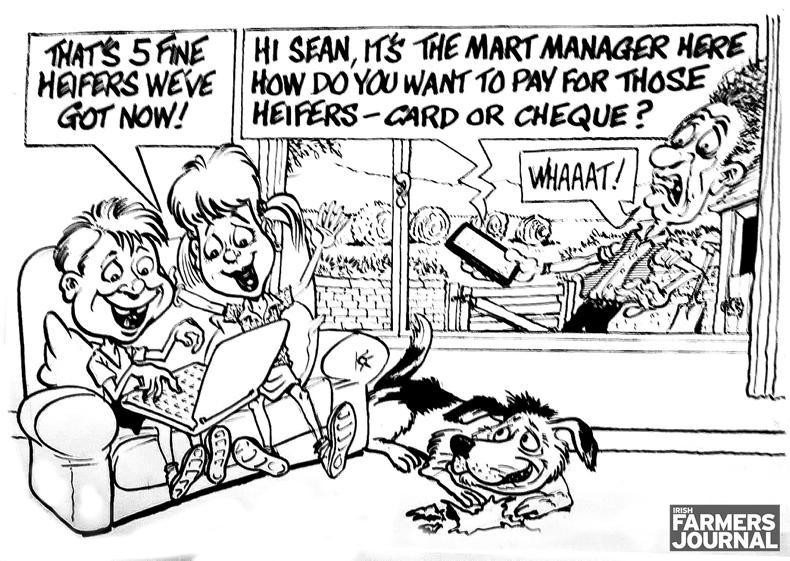
Wage subsidies: money for factories but not farmers
Farmers will be watching closely later in the year when Revenue publicises the names of the companies that availed of the Government’s Temporary Wage Subsidy Scheme (TWSS). It would be interesting to see what level of financial support is provided to meat factories over the course of the pandemic. Irish Farmers Journal sources indicate that it could be a multimillion euro sum.
To avail of the scheme, businesses needed to show a 25% drop in turnover. With a significant drop in the national kill and farmgate prices, it is understood that many meat processors will have met this criteria.
Meat processors that satisfy the criteria are, of course, entitled to avail of the scheme in the same way as airlines, hotel groups and thousands of other companies. The issue is the fact that processors will receive a multimillion support package at the same time as Government continues to ignore the income challenges at farm level.
There is also the added complication that extending the TWSS scheme until the end of August may unintentionally incentivise beef factories to keep throughput down during the summer months, creating a backlog of cattle into the autumn and putting further pressure on farmgate prices.
There is clearly an urgent need for a newly formed government to address the lack of equity in the way financial support is being provided across the supply chain. It would not be credible for any government to justify a multimillion support package to meat processors while ignoring the financial impact of COVID-19 at farm level. The potential impact of the extension of TWSS on the autumn cattle trade must also be addressed through the introduction of a market support mechanism that safeguards prices returned to farmers.
It is disappointing but unsurprising that the Consumer and Competition Protection Commission (CCPC) continues to avoid an in-depth investigation of the beef processing industry. It is unacceptable that it should look to the complainants to produce the evidence to trigger a full investigation – farmers farm and don’t do forensic inquiries in their spare time.
The only experience farmers have of the CCPC taking an interest in the sector is to issue warnings about price fixing during crisis talks between factories and farm representatives. The CCPC successfully represented the interests of consumers as the recent insurance investigation demonstrates, but has failed to adequately investigate the relationship between small sole trader farmers dealing with multinational businesses that control three-quarters of Ireland’s beef processing capacity.
The length of this grievance should be enough to warrant an investigation. There is the real possibility that nothing inappropriate is taking place. However, as Jim Power in his report for the IFA suggested, an investigation would address this once and for all.
As Phelim O'Neill outlines, the ongoing demand for an investigation reflects the lack of trust between farmer and factory. This is something the processors needs to address. Transparency is the only tool that delivers it. Beef processing is a high-volume, low-margin business and if factories published this, it would be a positive first step in confidence building.
Water quality: success of ASSAP must be built upon
As Lorcan Allen reports, the Agricultural Sustainability Support and Advisory Programme (ASSAP) is delivering really positive results in terms of water quality.
In just two years, catchments under the ASSAP have seen a double-digit improvement in water quality following collaboration between farmers, agri advisers and the Environmental Protection Agency. This is the kind of excellent work that must be built on to ensure the future safeguarding of our environment. It also further illustrates just how engaged farmers are on issues like the environment and biodiversity once they are made to feel a core part of the solution.
Last Thursday, the Irish Farmers Journal hosted a live webinar with Wolfgang Burtscher. Having recently been appointed to the position of director general, Burtscher is the most senior official within the European Commission’s Directorate General for Agriculture and Rural Development. He will play a central role in shaping future agricultural policy and in determining the level of economic viability on over 10 million EU farms.
Throughout the webinar, the Austrian native demonstrated an exceptionally strong command of his brief. His responses to a number of supplementary questions are detailed here. Within the answers there is an acknowledgement that “the increased costs of sustainability at farm level needs to translate into higher farmgate prices to ensure a fair return for farmers”.
Unsurprisingly, he was on message in relation to objectives outlined in the recently published Farm to Fork and biodiversity strategies, reinforcing the need to improve sustainability, enhance biodiversity, reduce dependence on fertilisers and increase the land area in organic production.
However, in his address, Burtscher accepted that at this point the objectives within both strategies were aspirational targets and reflect the “beginning of a discussion and not the end”. He gave a commitment that the consequences of any measures introduced will be subject to an economic impact assessment and undergo constant monitoring in relation to the impact on food security and farmers’ incomes.
While the softening in approach is welcome, there remains no room for complacency. Yes, there will be tweaks and concessions as the various measures in each of the strategies pass through the European Parliament and Council of Ministers, but the direction of travel is unlikely to change significantly.
It is critical that the development of CAP policy is not left to others. Farmers must take a commanding role
Environmental sustainability, biodiversity, water quality, animal welfare and food safety are going to dominate EU policy. It will shape the current and future CAP reforms. Delivering on this while protecting the economic sustainability of farmers will be a huge challenge and only achievable if supported through proper policy and a fully funded CAP budget.
Meanwhile, there is clearly an acknowledgement within the Commission as to the shortcoming of adopting a one-CAP-fits-all approach. The narrative established by Phil Hogan during his term as commissioner for agriculture to grant member states increased flexibility has clearly become embedded within the thinking of Commission officials.

Irish Farmers Journal editor Justin McCarthy asking questions of Wolfgang Burtscher.
In our interview, Burtscher spoke of the Commission taking a “differentiated” approach to different member states when it comes to the design and implementation of CAP policy.
Of course, this presents the risk of an “uncommon” CAP with the potential to create trade distortions across member states. But on the upside, it now provides opportunity for member states to design national strategic plans that reflect the diversity of farming systems across member states.
For Ireland, it presents an opportunity to develop a strategic plan for the next CAP that reflects the uniqueness of our largely grass-based production systems. It is critical that development of this plan is not left to others. Farmers must take a commanding role. This will require the development of farmer-led policy that will not only deliver on EU objectives, but also protect farm incomes.
We must look to reintegrate and exploit the dividends of collaboration between sectors. Using national flexibility to permit red clover into the protein crop scheme would be an obvious win for the tillage and livestock sectors. It would also reduce dependence on imported protein and deliver a better nutrient balance.
A national strategy would also provide scope to develop policy that would strike a better balance between supporting productivity and rewarding environmental dividends. It would also be the basis for presenting a strong case to the European Commission that our extensive suckler beef production system is de facto an organic production model and should be recognised as such when calculating land use.
The easy option would be for farmers to adopt a hands-off approach in the development of Ireland’s strategic plan – leave it to others and criticise the outcome. But it would represent a missed opportunity. The opportunity to develop a national plan gives farmers the chance to take back some control from Brussels and develop sensible policy. It’s an opportunity that should not be missed.

Wage subsidies: money for factories but not farmers
Farmers will be watching closely later in the year when Revenue publicises the names of the companies that availed of the Government’s Temporary Wage Subsidy Scheme (TWSS). It would be interesting to see what level of financial support is provided to meat factories over the course of the pandemic. Irish Farmers Journal sources indicate that it could be a multimillion euro sum.
To avail of the scheme, businesses needed to show a 25% drop in turnover. With a significant drop in the national kill and farmgate prices, it is understood that many meat processors will have met this criteria.
Meat processors that satisfy the criteria are, of course, entitled to avail of the scheme in the same way as airlines, hotel groups and thousands of other companies. The issue is the fact that processors will receive a multimillion support package at the same time as Government continues to ignore the income challenges at farm level.
There is also the added complication that extending the TWSS scheme until the end of August may unintentionally incentivise beef factories to keep throughput down during the summer months, creating a backlog of cattle into the autumn and putting further pressure on farmgate prices.
There is clearly an urgent need for a newly formed government to address the lack of equity in the way financial support is being provided across the supply chain. It would not be credible for any government to justify a multimillion support package to meat processors while ignoring the financial impact of COVID-19 at farm level. The potential impact of the extension of TWSS on the autumn cattle trade must also be addressed through the introduction of a market support mechanism that safeguards prices returned to farmers.
It is disappointing but unsurprising that the Consumer and Competition Protection Commission (CCPC) continues to avoid an in-depth investigation of the beef processing industry. It is unacceptable that it should look to the complainants to produce the evidence to trigger a full investigation – farmers farm and don’t do forensic inquiries in their spare time.
The only experience farmers have of the CCPC taking an interest in the sector is to issue warnings about price fixing during crisis talks between factories and farm representatives. The CCPC successfully represented the interests of consumers as the recent insurance investigation demonstrates, but has failed to adequately investigate the relationship between small sole trader farmers dealing with multinational businesses that control three-quarters of Ireland’s beef processing capacity.
The length of this grievance should be enough to warrant an investigation. There is the real possibility that nothing inappropriate is taking place. However, as Jim Power in his report for the IFA suggested, an investigation would address this once and for all.
As Phelim O'Neill outlines, the ongoing demand for an investigation reflects the lack of trust between farmer and factory. This is something the processors needs to address. Transparency is the only tool that delivers it. Beef processing is a high-volume, low-margin business and if factories published this, it would be a positive first step in confidence building.
Water quality: success of ASSAP must be built upon
As Lorcan Allen reports, the Agricultural Sustainability Support and Advisory Programme (ASSAP) is delivering really positive results in terms of water quality.
In just two years, catchments under the ASSAP have seen a double-digit improvement in water quality following collaboration between farmers, agri advisers and the Environmental Protection Agency. This is the kind of excellent work that must be built on to ensure the future safeguarding of our environment. It also further illustrates just how engaged farmers are on issues like the environment and biodiversity once they are made to feel a core part of the solution.






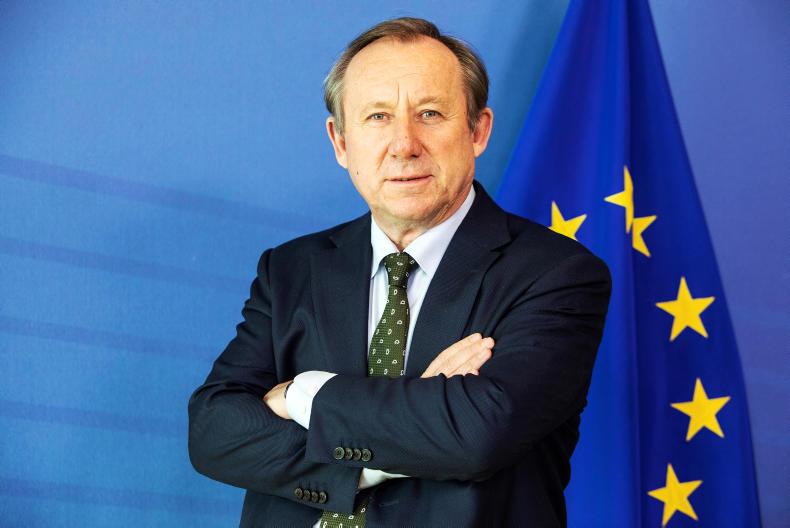
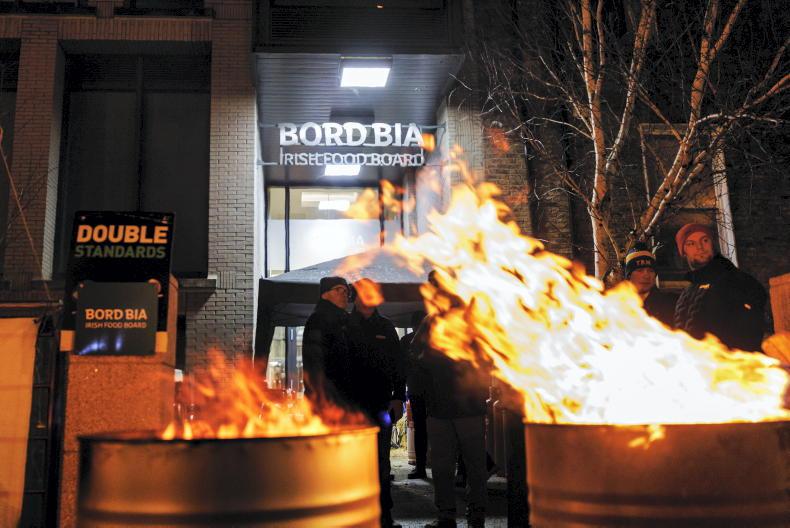

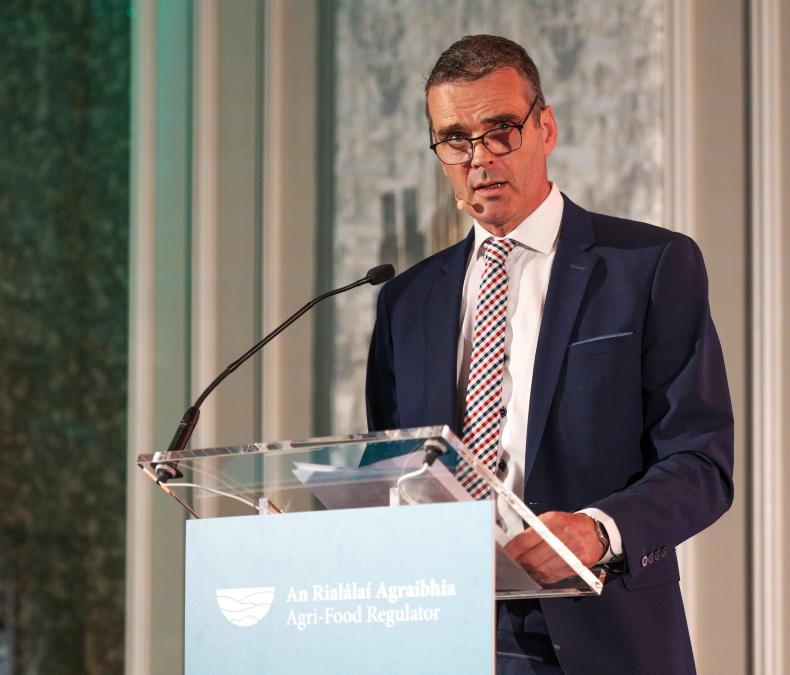
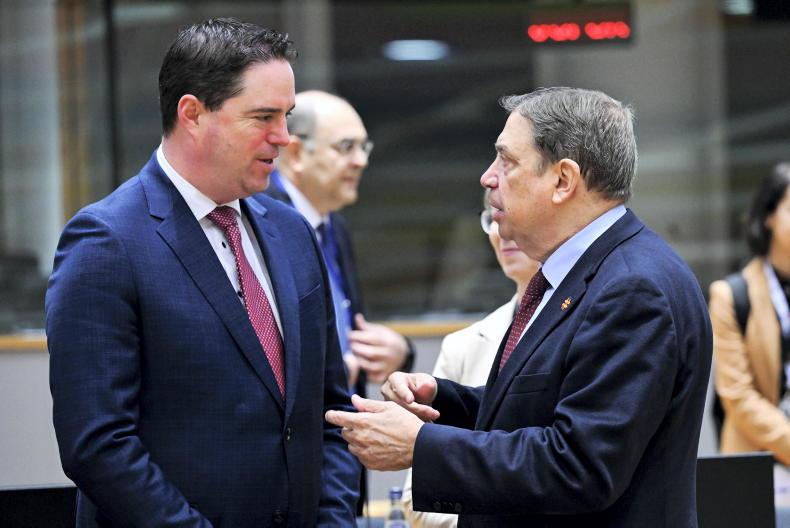
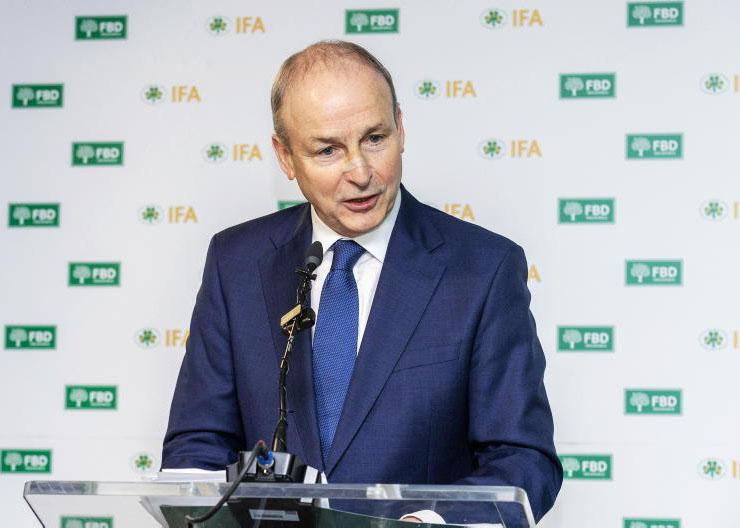
SHARING OPTIONS